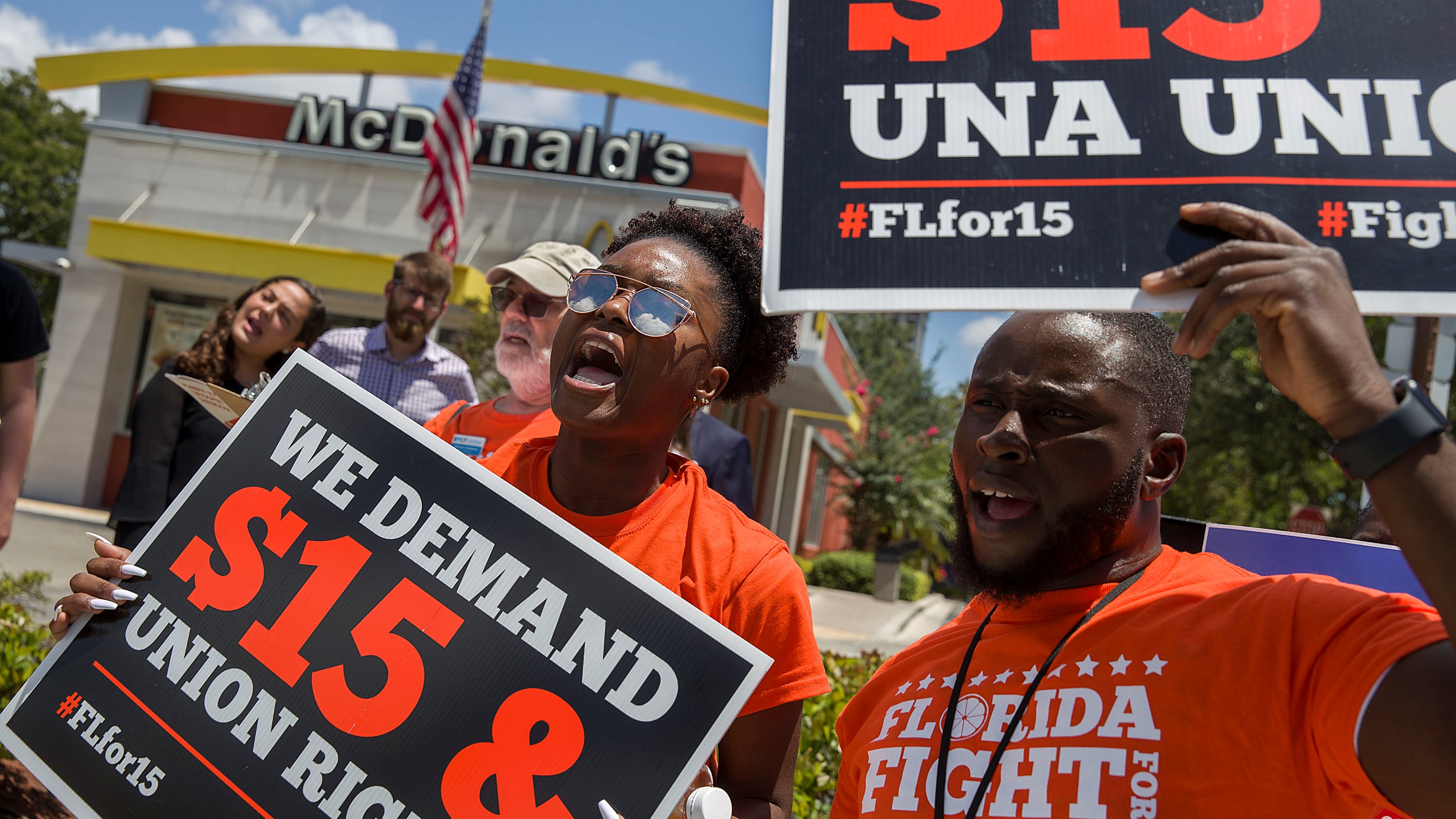Ten years ago this month, Congress raised the federal minimum wage from $6.55 to $7.25 an hour – where it has remained. Now, 10 years later, some members of Congress are trying to raise it again.
But state and local governments are far ahead of the federal government on this issue.
In states like New Jersey and Oregon, the minimum wage is already on its way up and will top out at $15 an hour, or about twice the federal rate.
In major cities like San Francisco, New York and Seattle, the Fight for $15 movement has already won victories for underpaid workers. According to Bloomberg Law’s Daily Labor Report, that trend will continue this year: “Starting July 1, hourly workers in several cities and counties in California, Illinois, Minnesota, and Maryland should see an increase in pay.”
Recognizing that Congress needs to catch up to states and localities, Vermont Sen. Bernie Sanders and Virginia Rep. Bobby Scott have introduced the Raise the Wage Act, which will, over time, raise the federal minimum wage from $7.25 to $15 an hour, providing a much-needed raise to working families throughout this country.
A $15-an-hour minimum wage would represent an earnings boost for some 40 million workers. It would mean a pay raise of nearly 40 percent of black workers and 33 percent for Hispanics, according to the Economic Policy Institute.
The vote on the Raise the Wage Act is anticipated to take place shortly after the Fourth of July recess. The House is moving closer to voting on Scott’s bill, according to Politico. While the legislation faces tougher odds in the Senate, AFSCME will continue to fight to raise the minimum wage and create an economy that works for everyone, not just the rich and powerful.
